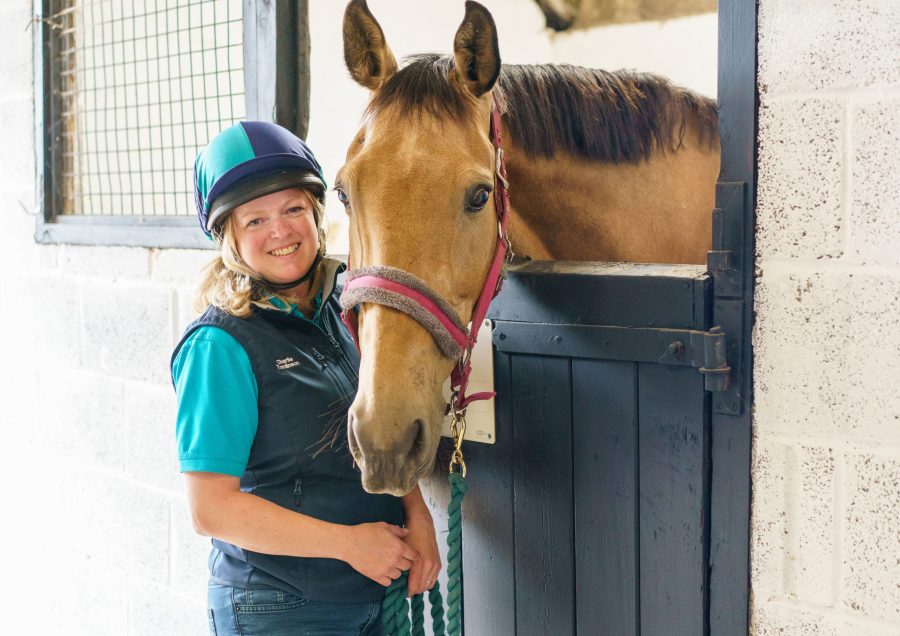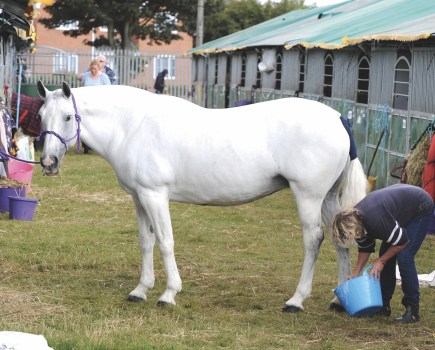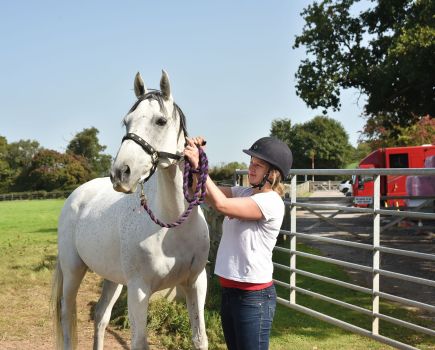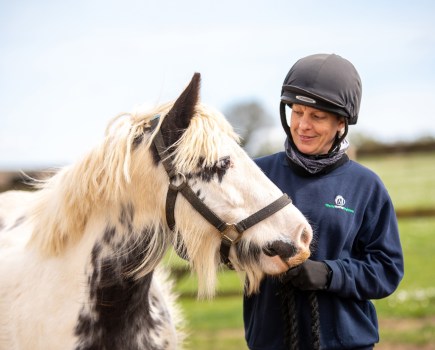An equine vet is supporting a campaign to encourage equine vets, nurses and other horse handlers to always wear a safety helmet when handling horses after she suffered life-changing injuries.
Charlie Tomlinson, clinical director at Hale Vets in Wiltshire, was injured in 2009 while nerve blocking a horse’s front leg. The gelding, who was good to handle and normally well behaved, reacted out of character during the procedure. He flung his leg forward, scooping Charlie up and throwing her head first into the stable wall.
An air ambulance was called but was unable to find a safe place to land, so Charlie was transported by road to Royal United Hospital in Bath. She was diagnosed with diffuse axonal injury, a traumatic brain injury, and was unable to work for six months.
“The saving grace was that I didn’t suffer a bleed on the brain. I consider myself incredibly lucky to have survived,” says Charlie. “As well as suffering a brain injury, I damaged my neck and suffered severe headaches and narcolepsy, where I would fall asleep during the day.
“I couldn’t speak properly, I lost my sense of smell and, as a result, taste is still affected. I also suffered memory loss as big sections of my life before the accident have gone and I only realise I no longer remember them when someone brings something up and I have no recollection of it.”
The after-effects of the injury have persisted, and Charlie still struggles to this day.
“The personality changes have been long-term and life changing. I lost the hearing in my left ear and I still get dizzy spells — these things really affect your life.”
‘I wish I’d worn a hat’
Since Charlie’s accident she has always worn a safety hat. She is now encouraging others to do the same by supporting VetPartners’ ‘Hat Hair – Don’t Care’ safety campaign.
VetPartners, which is made up of 160 veterinary practises, has partnered with hat manufacturer Charles Owen to provide all of their practises with safety helmets and branded silks.
“I’m really proud of what VetPartners is doing to care for team members who handle horses, and if this stops another vet from suffering serious head injuries, it will be very successful,” says Charlie.
“I wish I had worn a hat back then, but I was worried people would think I was inexperienced or not capable of doing my job,” she adds.
“Wearing a hat has been perceived as a sign of weakness with owners, perhaps wondering if their vet is less experienced or nervous of handling horses, but this is about safety, as even the best-behaved horses can cause an injury.
“VetPartners is using the power it has as a large veterinary group to encourage everyone to wear hats, and help clients to understand why their vet will be wearing a helmet.
“It’s great that they are raising awareness of this extremely important issue.”








